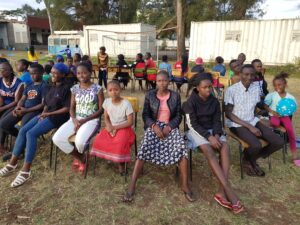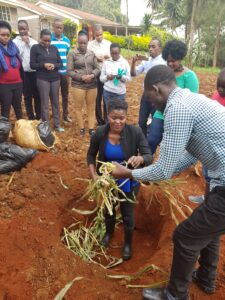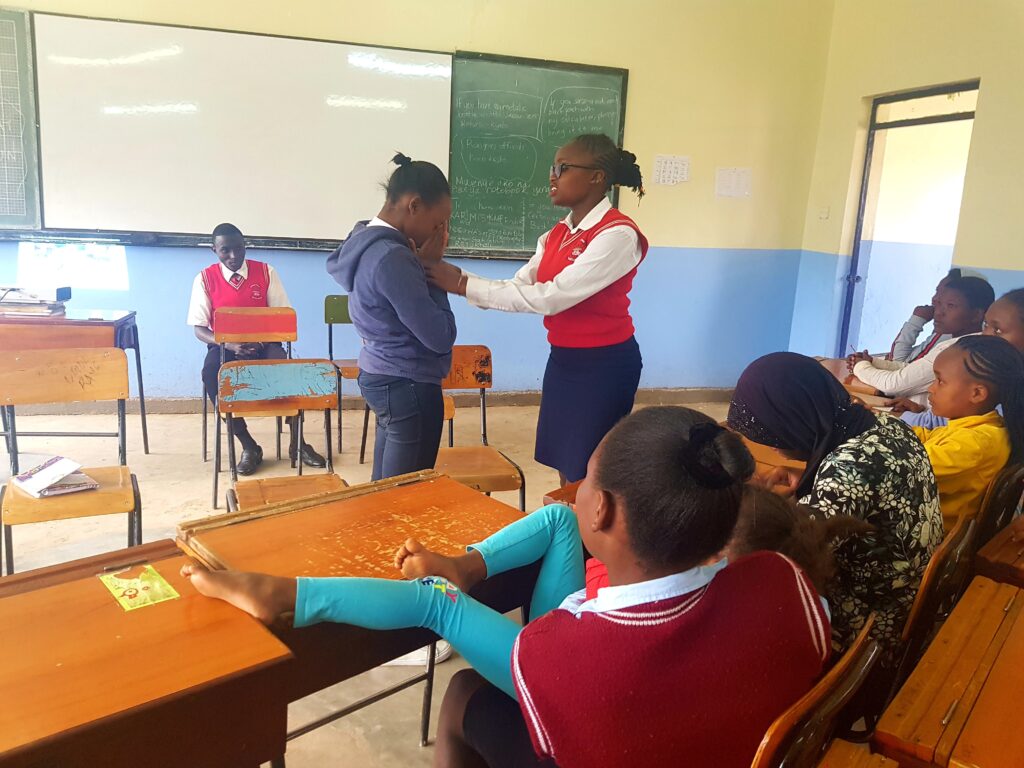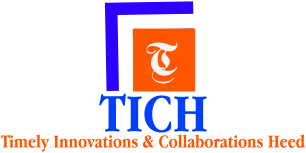TICH aligns to SDG 4 of ensuring Quality Education by working to achieve the Outcomes of increased school attendance and transition among 1000 students in 4 schools of Nairobi slums-Kawangware and Kibera, and 6 schools of Kisumu Nyando and Nyakach Sub-Counties.
In the period of 2018-2022, the TICH MMH Program realized increased school attendance among marginalized girls from 60%-95%. In addition, 92% students transitioned to TVETs and Universities as opposed to the previous rate of transition 65% in the year 2017.
The students joined TICH in Form Two and Three in the year 2018. 720/736 students are in year one or two in TVETs, undertaking Certificate and Diploma Courses in Mechanical Engineering, Fashion and Design, Plumbing, Building Technology, Nursing, Catering and Accommodation, Journalism, Electrical Engineering and Tour Guiding among others.

16/736 are in year one or two in Universities undertaking Degree Courses in Education, Business management, Biochemistry, Commerce, Computer Science and Engineering, and Statistics among others. 200 TICH students are still in Secondary Schools at Form 4 level.
To resolve school absenteeism as a result of lack of school fees, the students and their caregivers engage in Agri-preneurship (growing and selling leafy vegetables and poultry keeping on approximately 50m by 100m size of land. This enabled them to pay school fees and as a result, 98% of schools, reported timely consecutive payment of school fees.
The project therefore has:
- Introduced 85% caregivers to sustainable ways of raising school fees through Agri-preneurship,
- Increased food security (600/1000 Households- testify of having 2 meals daily) and,
- Increased learning among marginalized girls for 95% attend schools and 92% transitioned to TVETs and Universities.

The mentorship & mental health program focuses on trainings on:
- Values and Ethics
- SMART Goal Setting
- Relationships
- Communication Skills
- Study Habits
- Emotional Intelligence
- Money Skills
In addition TICH incorporates Community Service Learning (CSL) and open discussions with professionals termed Timely Talk.
As part of CSL the students and caregivers are engaged in Agri-preneurship where they are trained on entrepreneurship skills and taken through a 3 months mentorship program. The students and caregivers then engage in small scale farming, marketing and sales of farm products to take care of school needs.
The CSL and Timely Talk are aimed to expose students to practical learning.

We invite persons of different professions to share their journey to being in their profession for students to learn and understand what it takes to become a particular profession.
Agri-preneurship
Additionally, the students besides engaging in Agri-business, are attached to different career work places of their interest for 6 weeks especially during weekends and holidays, for community service learning purposes. They get a chance to learn work ethics, citizenry and values.
- TICH trains two teachers (male and female) as patrons for peer educators’ clubs (PECs) in support of the guidance and counselling department to continue training students on the key areas of Mentorship & Mental Health Program.
- The trained teachers then form the PECs with interested pupils/students.
- The PECs are then trained by TICH & PEC patrons.
- TICH then assigns one of their staff to the PEC Club to oversee continuous trainings on the key areas of Mentorship & Mental Health.
- Every PEC identifies an Agribusiness Value Chain to engage in and gets involved in value chain development and agri-preneurship training, business coaching and mentorship.
Mental Health
- TICH trains two teachers (male and female) as patrons for peer educators’ clubs (PECs) in support of the guidance and counselling department to continue training students on the key areas of Mentorship & Mental Health Program.
- The trained teachers then form the PECs with interested pupils/students.
- The PECs are then trained by TICH & PEC patrons.
- TICH then assigns one of their staff to the PEC Club to oversee continuous trainings on the key areas of Mentorship & Mental Health.
- Every PEC member identifies a student of same interest who is a year behind and becomes their mentor. The student mentor offers psychosocial support and referrals to either PEC patrons or school assigned TICH staff.

